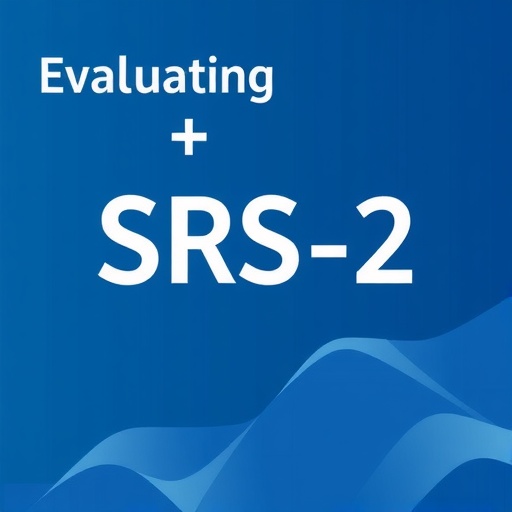The Social Responsiveness Scale 2nd Edition (SRS-2) has emerged as a critical tool in evaluating social impairments associated with autism spectrum disorder (ASD). The recent study conducted by El-Bouhali-Abdellaoui et al. provides comprehensive insights into the psychometric properties and utility of the SRS-2, specifically emphasizing a newly developed short version tailored for Spanish-speaking populations. This breakthrough holds promise not only for researchers but also for practitioners engaged in the diagnosis and assessment of ASD.
The study highlights the multifaceted nature of social responsiveness and its assessment through the SRS-2, which is designed to measure various facets of social interaction, communication, and the nature of relationships. By establishing a robust measurement framework, the research team aims to enhance understanding and identification of social impairments across diverse populations. The SRS-2’s normative data and lexicon are pivotal for ensuring appropriate comparisons and accurate diagnoses.
Delving deeper into the methodology, the researchers meticulously designed the study to include a broad spectrum of participants reflective of the Spanish population. The multi-site collaboration ensured that findings would be widely generalizable and relevant to various demographics. By employing sophisticated statistical analyses, the research team scrutinized the factor structure, reliability, and validity of the SRS-2—cornerstones of any psychometric evaluation.
Reliability, as reported in the findings, was particularly notable. The internal consistency of the SRS-2 was found to be exceptionally high, showcasing its potential as a reliable instrument for clinicians. In practice, the implications of high reliability mean that practitioners can confidently rely on scores obtained from the SRS-2 to inform diagnosis and intervention planning. This reliability is crucial, particularly in clinical settings where the accuracy of assessments critically impacts treatment trajectories.
Moving forward, the validation of a short version of the SRS-2 marks a significant advancement in the field of autism research. This abridged scale retains essential features of the original instrument while ensuring ease of use for clinicians under time constraints. The considerations surrounding the development of this short version are vital, as they address the need for accessible tools that maintain rigor without compromising diagnostic integrity. Such adaptations can potentially facilitate broader screening efforts and enhance early detection of ASD.
The study’s findings resonate with the growing body of literature advocating for culturally sensitive assessment tools in the realm of ASD. The Spanish adaptation of the SRS-2 aligns with global efforts to ensure that tools for diagnosis and assessment are not only accurate but also culturally relevant. This culturally informed approach can help mitigate disparities in diagnosis and treatment faced by minorities and non-English-speaking populations.
In addition to these psychometric properties, the research team discussed the global implications of their findings. As awareness of autism increases, so does the imperative to have accessible and reliable assessment tools within different cultural contexts. The study provides a model for how researchers can effectively adapt and validate instruments across languages and cultures, paving the way for similar initiatives in other languages and regions.
The implications of this study extend beyond academic spheres. For clinicians working in diverse environments, having a validated and reliable tool in Spanish can significantly impact intervention planning and patient engagement. The study advocates for wider adoption of the SRS-2, particularly the short version, as a means to improve the efficiency of diagnosis while still providing necessary insights into a patient’s social functioning.
Colleagues in the field of psychology and psychiatry are encouraged to consider the findings of this study when employing the SRS-2 in their practices. The emphasis on reliable psychometric properties coupled with the development of a brief version positions the SRS-2 as an invaluable asset. This endorsement may lead to increased utilization of the SRS-2 in various clinical and research settings, subsequently enhancing the standard of care for individuals with autism spectrum disorder.
The authors underscore the importance of continuous research in refining tools such as the SRS-2. Following the promising results presented, there is a call to action for further studies to validate these findings in different populations and settings. Longitudinal research could provide deeper insights into the longitudinal effectiveness of the SRS-2, examining how its outcomes correlate with developmental progresses over time.
In summary, the study by El-Bouhali-Abdellaoui et al. contributes to a critical area of autism research by providing a thorough examination of the SRS-2’s psychometric properties and developing an accessible short version. With the global surge in autism diagnoses, such research is not only timely but essential. Practitioners armed with reliable tools can better serve their communities, ultimately leading to improved outcomes for individuals with autism and their families.
The significance of this research cannot be overstated; it represents a foundational step toward enhancing the landscape of autism assessment. As the field continues to evolve, studies like this set the stage for future innovations in diagnosis, treatment, and understanding of autism spectrum disorder.
Subject of Research: Psychometric Properties of the Social Responsiveness Scale 2nd Edition (SRS-2) and Development of a Short Version in a Spanish Sample.
Article Title: Psychometric Properties of the Social Responsiveness Scale 2nd Edition (SRS-2) and Development of a Short Version in a Spanish Sample.
Article References:
El-Bouhali-Abdellaoui, F., Voltas, N., Morales-Hidalgo, P. et al. Psychometric Properties of the Social Responsiveness Scale 2nd Edition (SRS-2) and Development of a Short Version in a Spanish Sample.
J Autism Dev Disord (2025). https://doi.org/10.1007/s10803-025-07000-w
Image Credits: AI Generated
DOI: 10.1007/s10803-025-07000-w
Keywords: Social Responsiveness Scale, SRS-2, Autism Spectrum Disorder, Psychometric Properties, Short Version, Spanish Sample, Diagnosis, Assessment, Reliability, Culture Sensitivity.
Tags: Autism Spectrum Disorder assessmentcross-cultural assessment toolsdiagnosing autism spectrum disorder.multi-site research collaborationpsychometric properties of SRS-2reliability and validity in psychologyshort version of SRS-2social impairments measurementsocial responsiveness scale insightsSpanish-speaking population studySRS-2 evaluationstatistical analysis in psychometrics





